Power Quote: W. S. Merwin
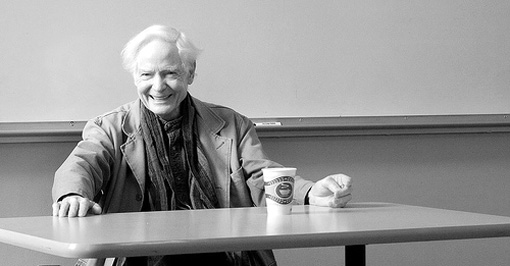
W. S. Merwin
“I had hardly begun to read
I asked how can you ever be sure
that what you write is really
any good at all and he said you can’t
you can’t you can never be sure
you die without knowing
whether anything you wrote was any good
if you have to be sure don’t write”
-From “Berryman”
POWER QUOTE: AR AMMONS
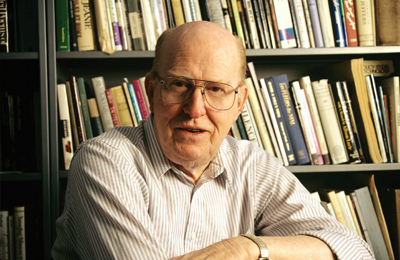
“where i came from it
wouldn’t be smart to talk about art:
talk about sawing logs or getting
the swamp hogs up or worming tobacco
or gutting ditches would be a lot
safer: when in Rome: don’t try to
get the Romans to do what you do.”
(from the poem GLARE)
Power Quote: William Hazlitt (for Blake)
Nature seems (the more we look into it) made up of antipathies: without something to hate, we should lose the very spring of thought and action. Life would turn to a stagnant pool, were it not ruffled by the jarring interests, the unruly passions, of men. The white streak in our own fortunes is brightened (or just rendered visible by making all around it as dark as possible; so the rainbow paints its form upon the cloud. Is it pride? Is it envy? Is it the force of contrast? Is it weakness or malice? But so it is, that there is a secret affinity, a hankering after, evil in the human mind, and that it takes a perverse, but a fortunate delight in mischief, since it is a never-failing source of satisfaction. Pure good soon grows insipid, wants variety and spirit. Pain is a bittersweet, wants variety and spirit. Love turns, with a little indulgence, to indifference or disgust: hatred alone is immortal.
Power Quote: James Joyce
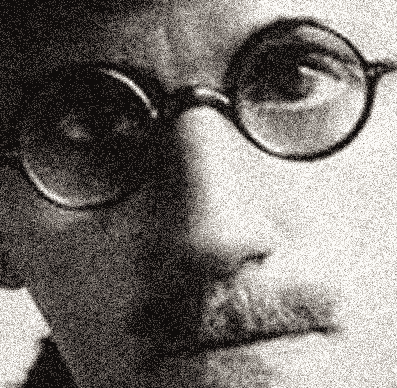
If you would like to read again, or (I’m hoping) for the first time, an excerpt from the penultimate chapter “Ithaca” in Ulysses, wherein Stephen (of A Portrait of an artist as a young man) escorts a drunken Leopold Bloom home, click after the break.
Power Quote: Henry James
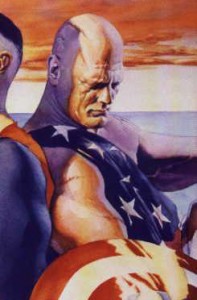 Stole this from my friend Usedbuyer 2.0. It’s quite good:
Stole this from my friend Usedbuyer 2.0. It’s quite good:
“The American was thin, dry, fine, with something in his face which seemed to say that there was more in him of the spirit than of the letter.”
From The Modern Warning
Power quote: Seduced By His Touch, by Tracy Anne Warren

Let's just be friends, okay?
She lifted an eyebrow. “You want a truce, do you?”
“Yes, most particularly in the bedroom.” His fingers inched toward the small of her back, pausing to draw clever little circles over a spot where she was extremely sensitive.
Damn him for knowing about that spot, she thought as she arched involuntarily beneath his touch. Her heart hammered, telltale moisture gathering between her thighs.
“It’s not as if we’d be breaking any rules,” he pointed out with husky persuasion. “Quite the contrary, in fact, since our union is sanctioned by the laws of both God and man. So why deny ourselves? Why not enjoy what pleasure we can find?”…
In a devastating move, he stroked his hand over her naked bottom., then slid a pair of fingers deep into her aching core. Her spine arched, instant bliss flooding her system.…
And he was right, she did love it. And she would be devastated if he stopped. But he had to know that already, since her body was quite literally weeping from the ecstacy he’d given her, and was giving her still.
Power Quote: De La Soul
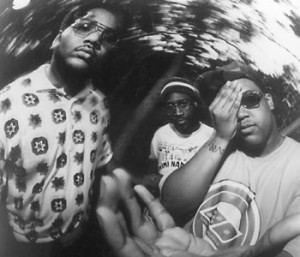
POS: Living in everyday is something
Something everyday like this is our livin’DOVE: Giving something sheer for the crowd is our major
Major to the crowd is to hear what we’re givin’POS: No time to rest we got work in the studio
Studio suppliers rest at no timeDOVE: Showtime is enough when the Soul is performing
Performing is the Soul y’all, and it’s showtimePOS: Coping with dates in clubs, can’t even lounge,
Lounge with the homeboys how we are copin’DOVE: Scoping new material for Paul to plug high-pitched,
High-pitched what Paul plugs in and still scopin’POS: Bearer of peaceful views to express peace,
Peaceful expressions why we are bearers—This Is a Recording for Living in a Full time Era
Oh, come on now. Not even De La writes like this anymore.
POWER QUOTE: WILLIAM SEWARD BURROUGHS
(from “the invisible generation” chapter of THE TICKET THAT EXPLODED):
why not give tape recorder parties every guest arrives with his recorder and tapes of what he intends to say at the party recording what other recorders say to him it is the height of rudeness not to record when addressed directly by another tape recorder and you can’t say anything directly have to record it first…you will hear one ugly voice and see one ugly spirit is made of ugly old prerecordings the more you run the tapes through and cut them up the less power they will have
July 28th, 2009 / 9:54 pm
POWER QUOTE: James Guida
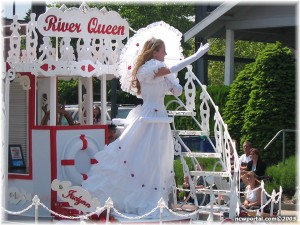 From his new book, Marbles, published by Turtle Point Press. (Second title down.)
From his new book, Marbles, published by Turtle Point Press. (Second title down.)
There are sentences so triumphant we imagine we can make out the author in them, waving to us delightedly from a float within the paragraph.
A coworker found this book in our pile of galleys and reader’s copies. More of the pieces from the book here.
I’m curious about the aphorism as a form.
I recall working a temp job—test scoring, I think—where during the New Worker orientation, another contingent employee mentioned that she liked to write, and when asked what sorts of things she wrote, she said she enjoyed writing poetry, stories, and “quotes.” I assume she meant aphorisms, but you never can tell. Maybe she considered writing down things other people had said a kind of writing. Or maybe she thought she was very quotable. In fact, as I have just quoted her “quote” line, she is/was, in a way, kind of quotable.
Are there narrative possibilities in the aphorism, or just poetic ones?
Power Quote: Nonfiction is Translation

“Say I’m writing an essay about my buddy Nate. If I remain completely faithful to the source text, I’d interview Nate and transcribe his quotes exactly, even keeping his incomplete sentences and particular use of “dude,” “man,” “you know what I’m sayin’,” fillers. Documentary playwrights have used this technique to capture a character through the preservation of unique speech patterns. Nate would be left as he is, the reader would have an awkward experience, and the target text would be thus foreignized. If I want to completely domesticate Nate, I wouldn’t interview him; I’d compose all his statements so the reader would have a totally fluid, coherent, rhythmic, economical, etc. speaker on the page. That wouldn’t at all be the Nate that exists in the real world (because no one actually speaks like this) but the reader would glide down the page with no trouble. Memoir is likely to take this approach. If I want to do something in between, I can do what a journalist does: interview Nate to capture his words and the way he uses them, but complete his sentences and give him the veneer of eloquence.
“Or—and this is what more realistically happens both in the art of translation and the art of nonfiction—the decision to domesticate or foreignize the source text comes line-by-line, word-by-word.”
—Brian Goedde
From a short, sharp essay on, as the title says, creative nonfiction as a form of translation.
(I worked with Goedde a number of years ago and just happened to think about him. At the time, he published a short book/long essay about hip-hop that I liked quite a bit. Apparently, he really pissed off Michelle Malkin and some jackass Freepers in late 2007 with this NYT essay. Good for you, Brian.)

